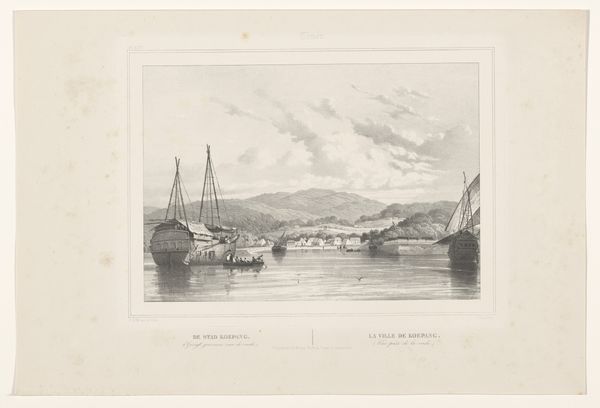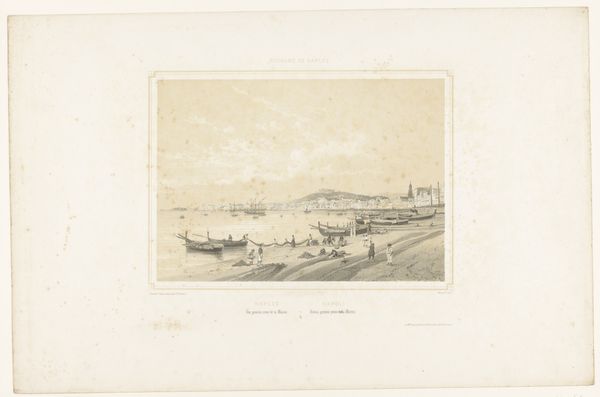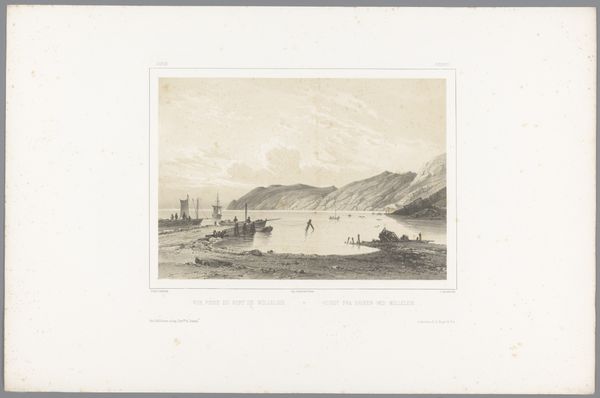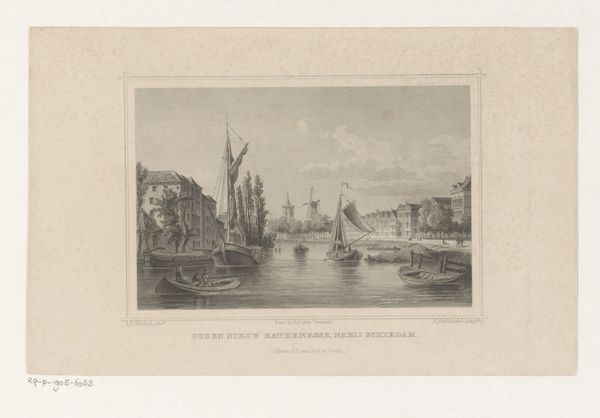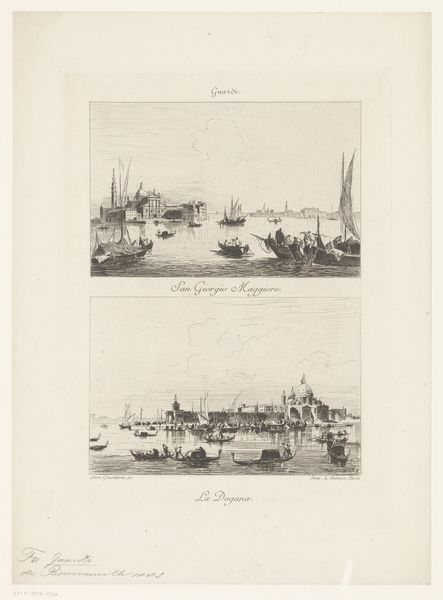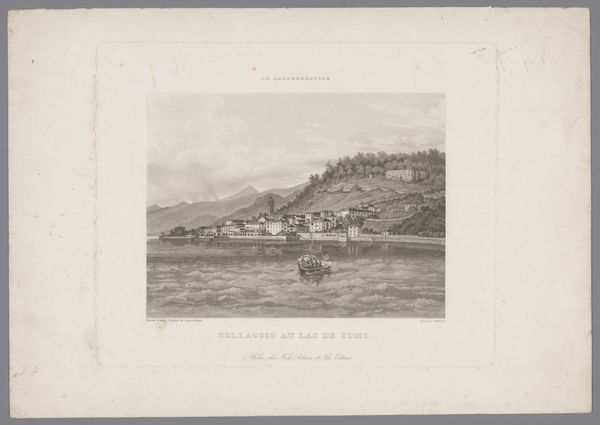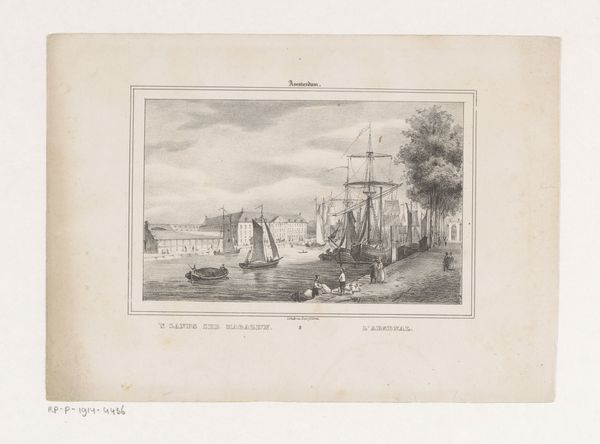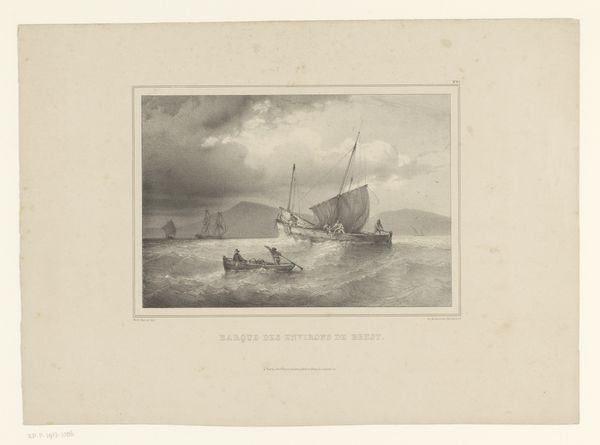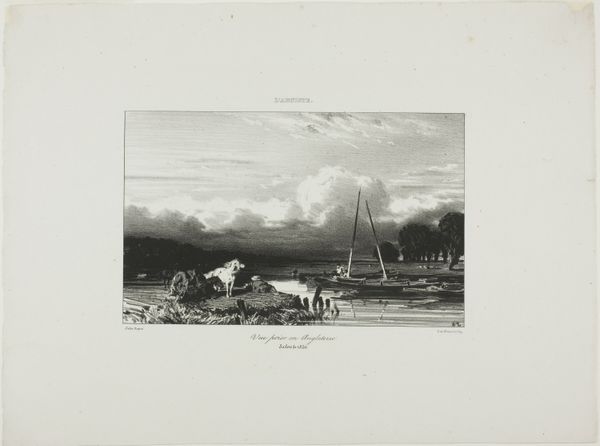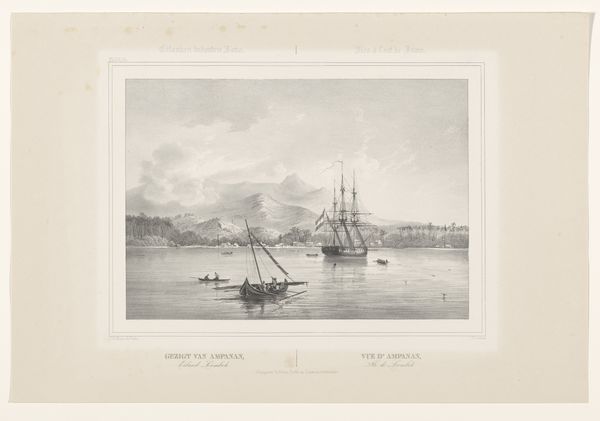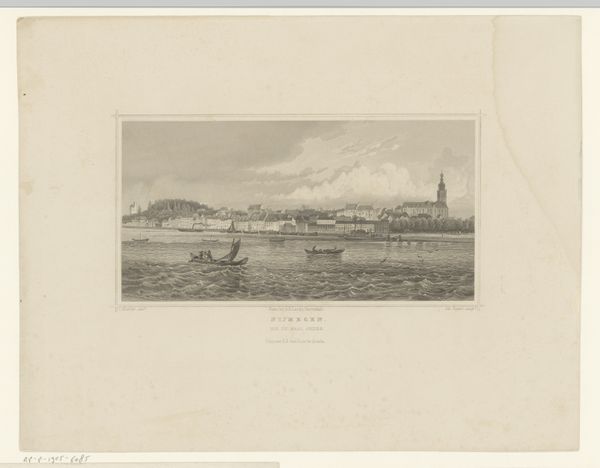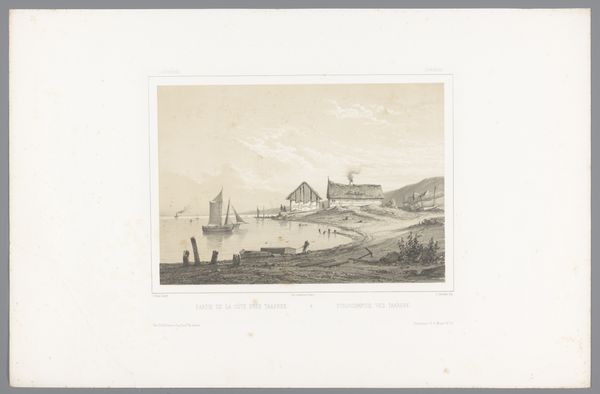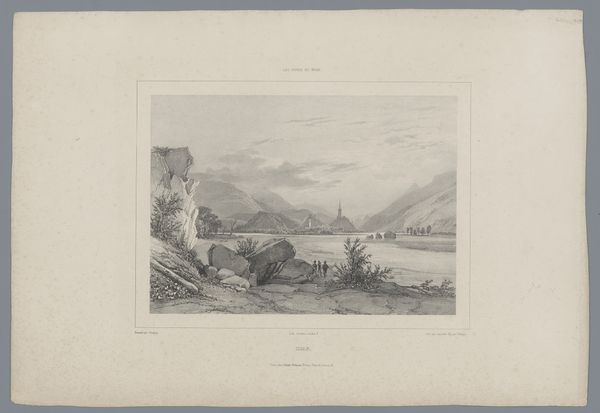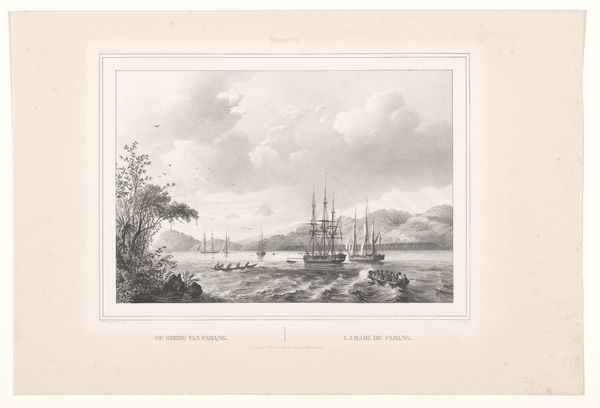
print, etching
# print
#
etching
#
landscape
#
etching
#
romanticism
#
cityscape
#
realism
Dimensions: height 228 mm, width 291 mm
Copyright: Rijks Museum: Open Domain
Editor: Jules Dupré’s etching, "View of the Port of Plymouth in Devon" from 1836, renders a peaceful harbor scene. It’s delicate, with all these incredibly fine lines... it evokes a sense of calm observation. What stands out to you most about it? Curator: For me, it’s the interplay of light and shadow, the emotional weight it carries, isn't it? Note how the boats are carefully placed, like figures frozen in a narrative. The symbols of travel and trade speak of both adventure and potential conflict. Can you sense a hint of melancholy woven into the image? Editor: Melancholy? I hadn’t considered that, but I see what you mean. It’s in the gray tones, and the subtle way the clouds are rendered? Is that common for harbor scenes from this era? Curator: Exactly. Think of harbors as transitional spaces - points of departure and arrival. Historically, Plymouth was a major naval base. These waters witnessed both triumphs and tragedies. What do you think that layering of meaning does to the experience of viewing it now? Editor: It definitely enriches the image. Knowing that it's not just a pretty scene, but also a reflection of history and human experience...it makes me appreciate it more. It’s like the scene carries echoes of the past. Curator: Precisely! Dupré isn't merely depicting a harbor. He’s imbuing it with layers of cultural memory, asking us to consider what we carry with us as we move through the world. It invites us to reflect on our relationship to history, doesn't it? Editor: Absolutely. I'll definitely look at harbor scenes differently from now on. Thank you for pointing that out. Curator: My pleasure! The symbols and imagery speak to us, if we only pause and listen.
Comments
No comments
Be the first to comment and join the conversation on the ultimate creative platform.
